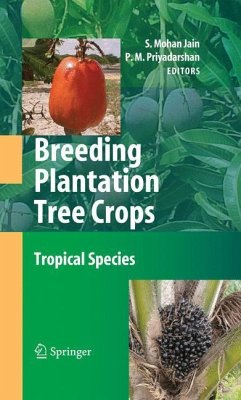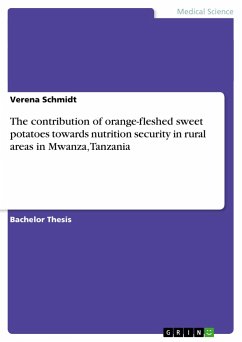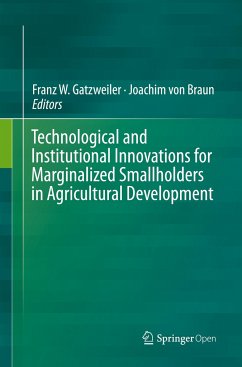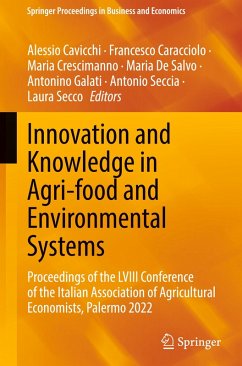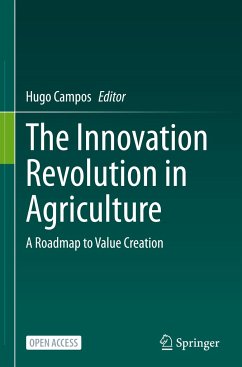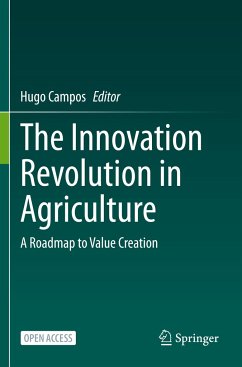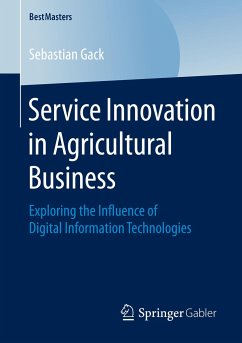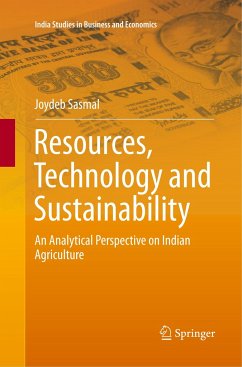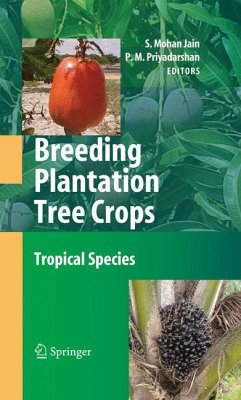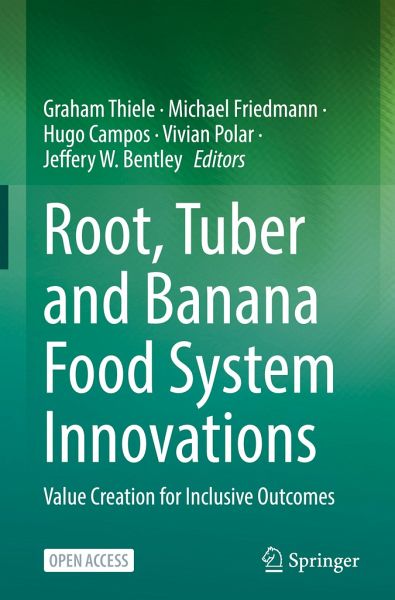
Root, Tuber and Banana Food System Innovations
Value Creation for Inclusive Outcomes
Herausgegeben: Thiele, Graham; Friedmann, Michael; Campos, Hugo; Polar, Vivian; Bentley, Jeffery W.
Versandkostenfrei!
Versandfertig in 6-10 Tagen
39,99 €
inkl. MwSt.

PAYBACK Punkte
20 °P sammeln!
This open access book describes recent innovations in food systems based on root, tuber and banana crops in developing countries. These innovations respond to many of the challenges facing these vital crops, linked to their vegetative seed and bulky and perishable produce. The innovations create value, food, jobs and new sources of income while improving the wellbeing and quality of life of their users. Women are often key players in the production, processing and marketing of roots, tubers and bananas, so successful innovation needs to consider gender. These crops and their value chains have ...
This open access book describes recent innovations in food systems based on root, tuber and banana crops in developing countries. These innovations respond to many of the challenges facing these vital crops, linked to their vegetative seed and bulky and perishable produce. The innovations create value, food, jobs and new sources of income while improving the wellbeing and quality of life of their users. Women are often key players in the production, processing and marketing of roots, tubers and bananas, so successful innovation needs to consider gender. These crops and their value chains have long been neglected by research and development, hence this book contributes to filling in the gap.
The book features many outcomes of the CGIAR Research Program in Roots, Tubers and Banana (RTB), which operated from 2012-21, encompassing many tropical countries, academic and industry partners, multiple crops, and major initiatives. It describes the successful innovation model developed by RTB that brings together diverse partners and organizations, to create value for the end users and to generate positive economic and social outcomes. RTB has accelerated the scaling of innovations to reach many end users cost effectively. Though most of the book's examples and insights are from Africa, they can be applied worldwide. The book will be useful for decision makers designing policies to scale up agricultural solutions, for researchers and extension specialists seeking practical ideas, and for scholars of innovation.
The book features many outcomes of the CGIAR Research Program in Roots, Tubers and Banana (RTB), which operated from 2012-21, encompassing many tropical countries, academic and industry partners, multiple crops, and major initiatives. It describes the successful innovation model developed by RTB that brings together diverse partners and organizations, to create value for the end users and to generate positive economic and social outcomes. RTB has accelerated the scaling of innovations to reach many end users cost effectively. Though most of the book's examples and insights are from Africa, they can be applied worldwide. The book will be useful for decision makers designing policies to scale up agricultural solutions, for researchers and extension specialists seeking practical ideas, and for scholars of innovation.






